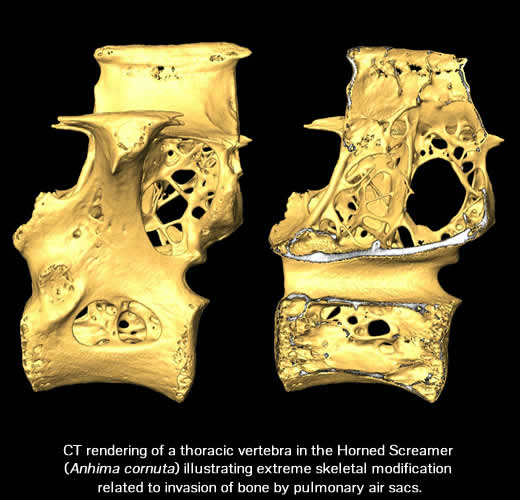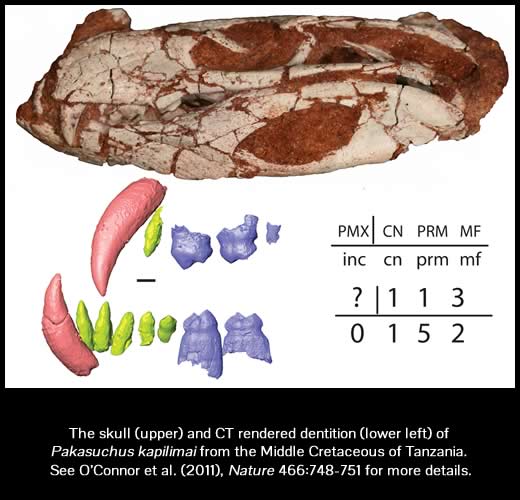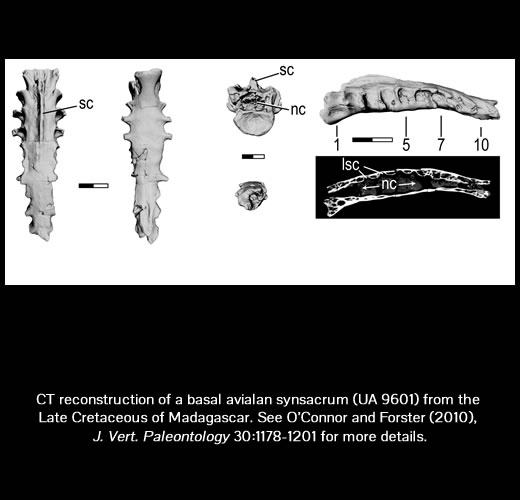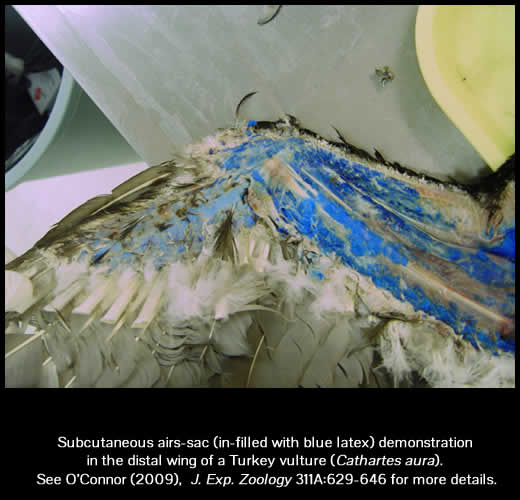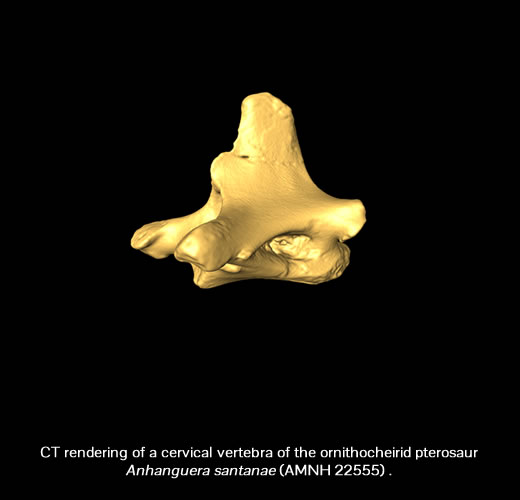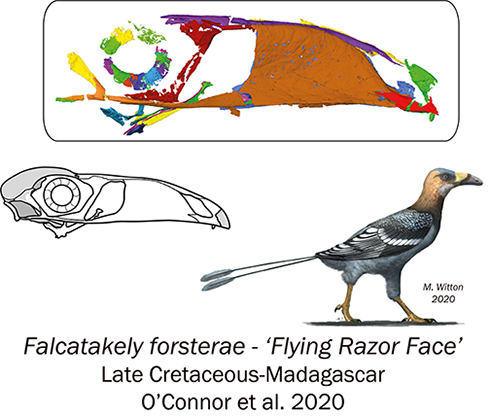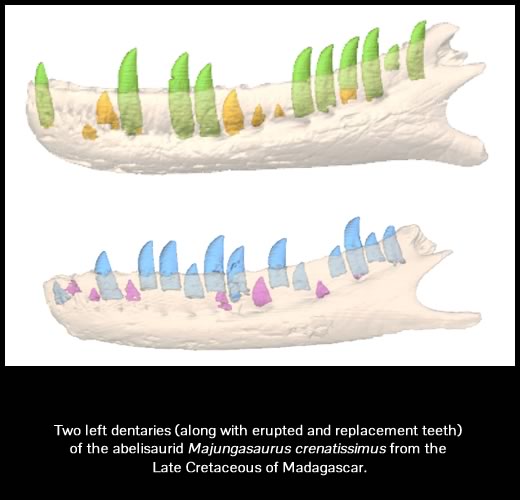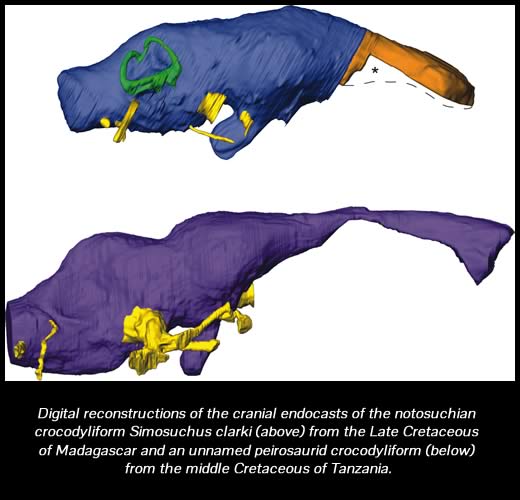Research
Laboratory/Museum Based Research
My main laboratory and museum research to date has primarily focused on phylogenetic, comparative, and functional analyses within the archosaurian groups that include non-avian and avian dinosaurs,
MicroCT based reconstruction of Pakasuchus kapilimai
from the Middle Cretaceous Galula Formation, southwestern Tanzania.
pterosaurs, and crocodyliforms. Generally these studies aim to characterize aspects of integrated anatomical systems (e.g., postcranial skeletal pneumaticity in dinosaurs [including birds] and pterosaurs, mammal-like dental organization in notosuchian crocodyliforms) within an explicit phylogenetic framework--and then to explore funcitonal implications of various types of anatomical organization. For example, employing a variety of comparative anatomical techniques (gross dissection, histology), along with both qualitative and quantitative CT and µCT approaches, efforts in my lab are directed at elucidating the developmental patterning of postcranial skeletal pneumaticity (pulmonary air sac invasion of bone) in extant birds. Rooted in the comparative method, these studies attempt to discern how factors such as phylogeny, body size, function (e.g., flight mode), physiology (e.g., inferred metabolic rate), and/or ecology correspond with the observed variability at this unique interface of the skeletal and respiratory systems. This approach has now been applied to multiple groups of extant birds, in addition to recent quantitative analyses focused on theropod dinosaurs and pterosaurs. Current OHIO PhD student Sam Gutherz is expanding these approaches into new clades of neoavians (e.g., cuckoos), while simultaneously better characterizing the anatomical underpinnings of extreme pneumaticity phenotypes in birds.
On the paleontology side of research, ongoing efforts in the lab are focused on characterizing "Middle" and Late Cretaceous dinosaurs, birds, and crocodyliforms from Tanzania and Madagascar (among other places), including the first ontogenetic study of cranial variation in Abelisauridae (a project on Majungasaurus crenatissimus
with Malagasy graduate student Liva Ratsimbaholison). University of Antananarivo PhD student Bakoli Rakotozafy is currently working on an ecomorphological characterization of the Maevarano Formation crocodyliform assemblage.
Other topics currently under investigation (2019 - present) by members of the lab include: morphology of the avian locomotor apparatus, evolutionary modeling of postcranial skeletal pneumaticity in neognath birds, descriptive and comparative analyses of titanosaurian sauropod and ceratopsid dinosaurs, and cranio-dental variability in notosuchian crocodyliforms to name a few. New lab NSF postdoc Chris Torres
is working on a study examing the relationship between major locomotor shifts (e.g., loss of flight) and resultant phenotypic changes in neuroanatomy in birds.
See the Lab Members
page for additional details.

